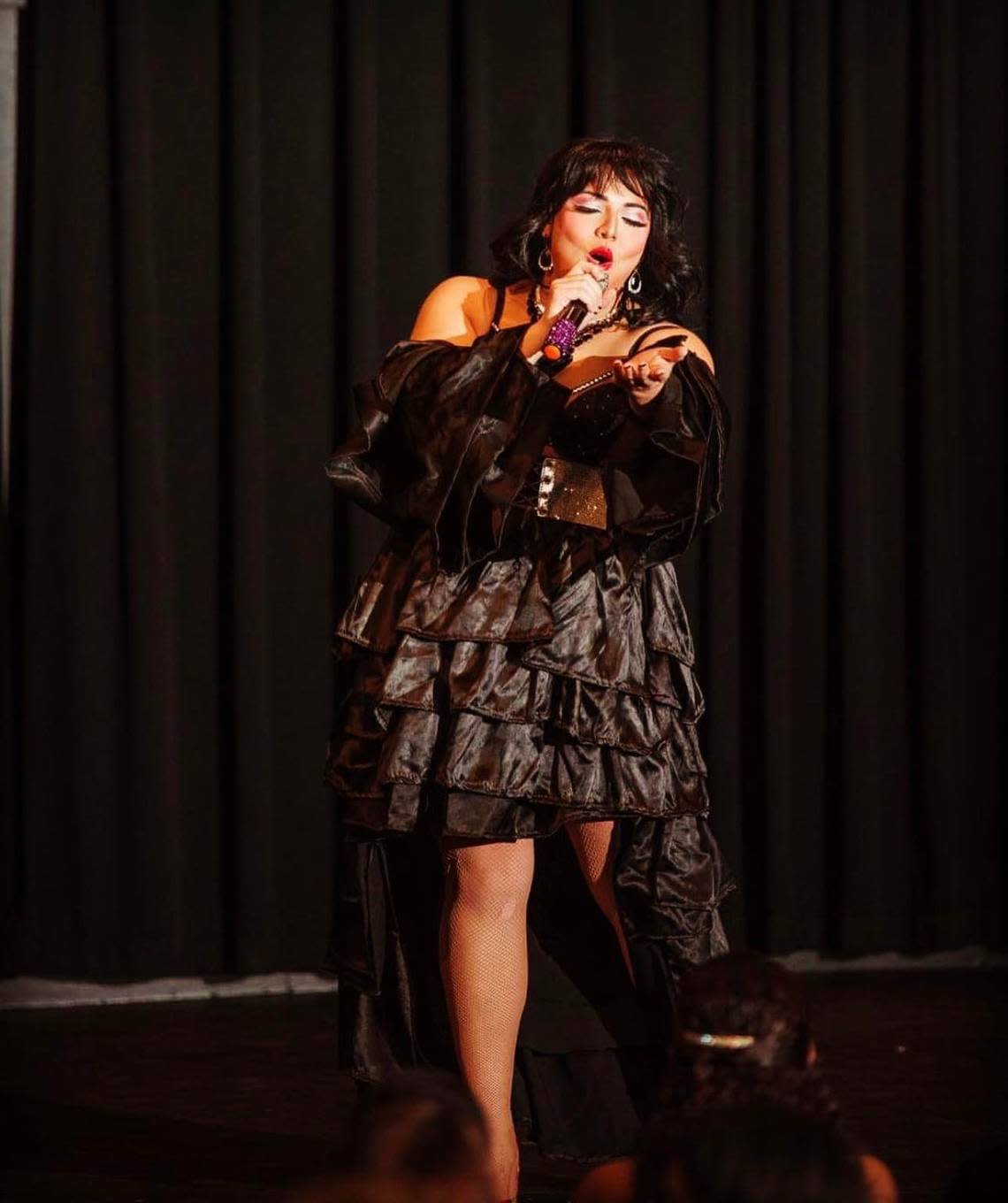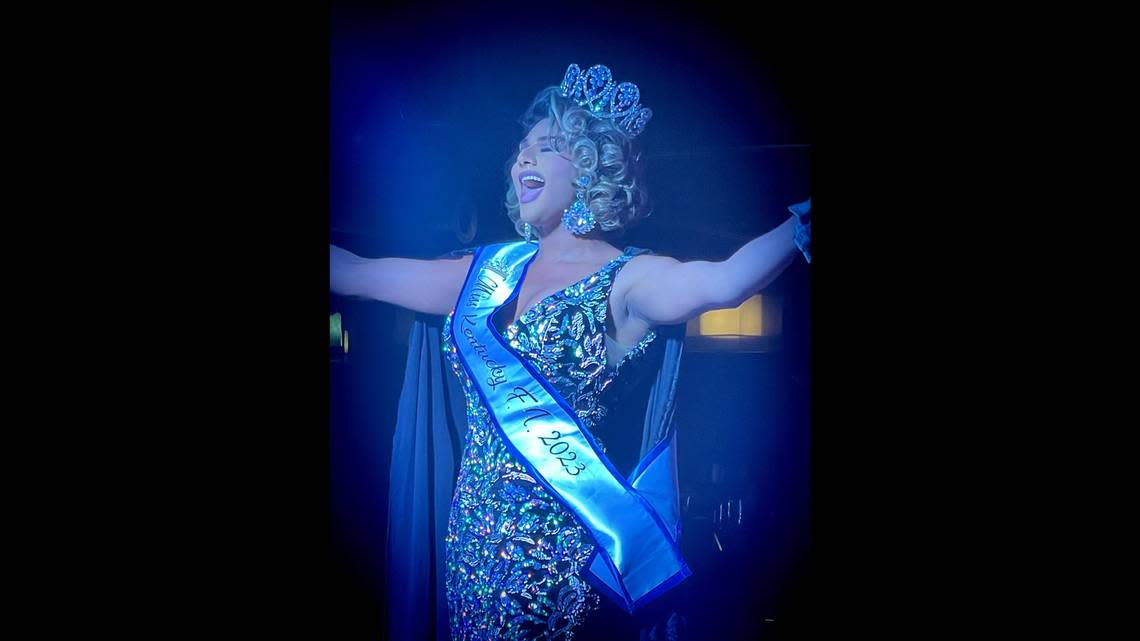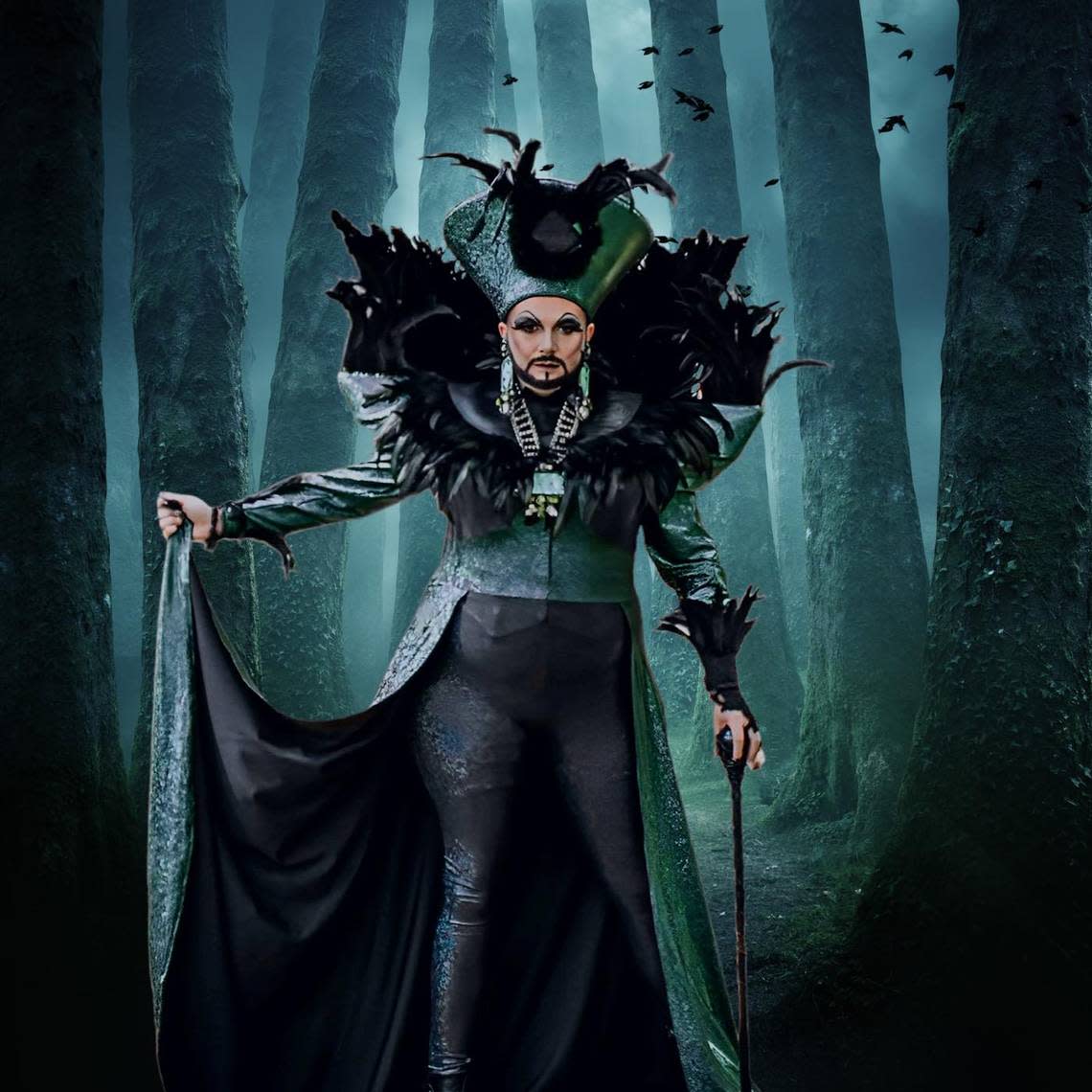Despite anti-LGBTQ bills, Kentucky drag queens say they ‘don’t back down from a fight’
Drag performer Lino Latella remembers that magical night when a friend offered to paint his face for the first time and he discovered he could be anyone with just a bit of makeup.
Latella had come to the U.S. from Venezuela, left his Catholic family and upbringing behind, and having done so, felt freer than ever before. As far as he knew, he was the only gay person in his family — certainly the only out one. But here, in America, he had befriended drag queens.
“Let me paint your face!” one of them said to him one night, and for Latella, the answer was easy: “You know, why not?”
Days later, still breaking in the new pair of high heels he was just learning to walk in, Latella was on stage.
These days, Latella performs as Agatha Zafiro, offering his audience a glamorous fantasy and a fierce joy. You might catch him at Mama Tequila, taking a patron by the hand as they belt out the lyrics of a familiar Latin pop song while lights swirl over their heads.
“That’s what makes you happy. That’s what makes you feel like you’re doing something great,” he said in a recent Herald-Leader interview.

Only recently, the outside world has been creeping into that colorful fantasy, darkening its hues. When Latella performs at straight clubs, there’s an awareness that wasn’t there before, an anxiety fueled by headlines about attacks on LGBTQ people and more recently, state legislation banning drag performances in public places.
Asked if the recent wave of anti-drag sentiment has made him feel less safe, Latella said he has felt less at ease.
“At this point we don’t feel free anymore like we used to,” Latella said.
“My art is not a crime”
Along with Kentucky, at least 11 other states scattered across the South, Midwest and Mountain West have seen similar bills introduced.
Here in Kentucky, Senate Bill 115 initially proposed a sweeping ban that would prohibit drag performances within a 1,000 feet of child care facilities, schools, public parks, homes or places of worship — effectively banning drag statewide.
A more recent version of the legislation instead prohibits drag shows on publicly owned land or in areas that might be viewed by a child. It’s accompanied by a slate of other anti-LGBT bills, including House Bill 470, which bans gender-affirming health care for transgender youth, something research has shown lowers the risk of depression and suicide among transgender children.
“This is a bill that is trying to legalize discrimination,” Tim Gilbert of Bowling Green said of Senate Bill 115, which has steadily advanced through the Kentucky legislature in recent days.
For Gilbert, who’s performed as Venus Knight for more than a decade, it’s the revival of an old smear against LGBTQ people and gay men specifically: that they’re somehow unfit to be around children.
“My art is not a crime,” said Gilbert, pushing back on right-wing critics who characterize drag as sexually explicit and obscene.
Venus Knight is a classy queen. She cut her teeth competing in pageants, raking in titles, including three national titles. Among her most recent accolades: Miss Kentucky Female Impersonator 2023.
At about 6 feet tall, Venus cuts an elegant, statuesque figure kitted out in glamorous evening gowns, complete with impeccable makeup, beautiful jewelry and big, bold hair.

When she does cut loose, she wears a full leotard and bodysuit, layers of tights and padding. Compare that to parents who take their children to Hooters, Gilbert quipped.
“They are not concerned about children,” Gilbert said of the lawmakers capitalizing on the anti-drag sentiment to go after the performances. If they were, Gilbert contends lawmakers would tackle gun violence, which is now the leading cause of death for children in the U.S.
Republican lawmakers might also crack down on child sex misconduct and abuse by teachers, coaches and clergy, Gilbert suggested.
John Rhyne, a Lexington-based queen who takes the stage as Uma Jewels, also sees restrictions on drag performances as heavy-handed. Like any entertainer, drag performers know their audience and can tailor their acts accordingly. What you might see at an adult nightclub isn’t what you’d see at a drag brunch open to all ages, Rhyne said.
“It’s just an art form. It’s just a way for people to express themselves differently,” said Rhyne, who called the wave of anti-drag legislation the “hate du jour.”

“It helps me be who I want to be”
Like many gay men, Jeff Chandler felt drawn toward art and artifice. His own journey with drag was born out of his feelings of anxiety and insecurity as an adolescent.
At a young age, he was diagnosed with ADHD and has battled with bouts of depression. But in drag, through which he can be anyone, Chandler recounts unlocking the affirmation that’s long eluded him. So much so that it helped him go to therapy, he said.
“It gave me the motivation to help me seek the help that I needed,” Chandler, who performs as Katrina Victim, said of his drag.
Recently though, Chandler has felt somewhat crestfallen about the state of things.
“It’s just really hard to see that we’re going through this as a state,” Chandler said. “We’re still falling behind.”
Through drag, Chandler found not just a vehicle for self-exploration, but a community. It’s helped him come out of his shell and build connections with others.
“It helps me be who I want to be,” he said.

“We don’t back down from a fight”
To some of the queens, all of this is fresh, but not new.
Gilbert draws parallels to Stonewall in 1969, when the gay community and its spaces were brutally policed and appearing in public in drag could get you arrested. Gilbert would like to see a revival of that resistant spirit, not just within the queer community, but outside of it as well.
“We are going backwards,” he said. “We are under attack.”
If people oppose the legislation like Senate Bill 115, they need to mobilize against it, drag performers said, including by contacting their representatives and by organizing protests.
“I’m not going to go silent here,” Gilbert said.
Chandler said his community needs allies and urged the public to “keep supporting, keep pushing.”
Rhyne finds endurance in the endless ingenuity and reinvention of drag and the trailblazers that came before him.
“We don’t spook easily,” Rhyne said. “We don’t back down from a fight.”
